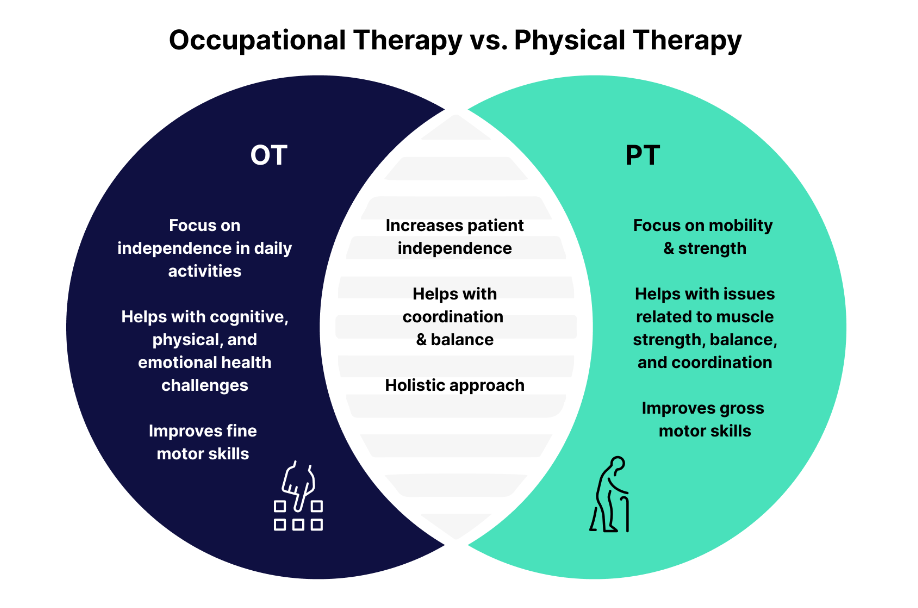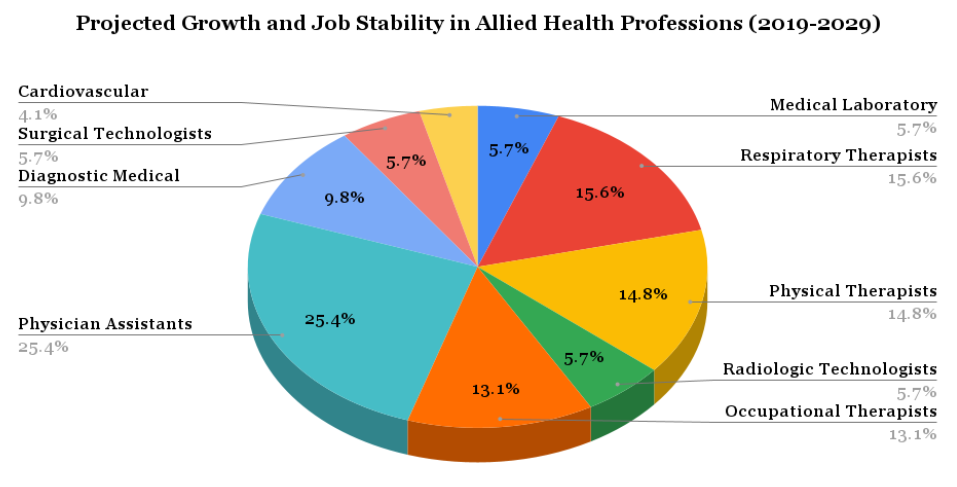Nursing is a critical and expanding field in high demand for skilled professionals. According to the Bureau of Labor Statistics, employment of registered nurses is anticipated to increase by 6% from 2022 to 2032, surpassing the average growth rate for all occupations. This growth is fueled by an aging population and an increased emphasis on preventive healthcare. However, the cost of nursing education can be prohibitive, underscoring the importance of scholarships.
Below is the compilation of scholarships available to nursing students in 2024. This resource features a variety of opportunities tailored to diverse needs and backgrounds, accompanied by practical advice to enhance your prospects of securing a scholarship. Whether you are embarking on your nursing education or seeking to advance your career, this guide will assist you throughout the application process.
A Concise Overview of Scholarships Available to Nursing Students
Nursing is a fulfilling career path that offers job security, but there’s a shortage of nurses that poses a public health risk. To address this, the AACN is advocating for increased federal funding for nursing education, promoting nurse residency programs to retain nurses, supporting accelerated nursing programs, and highlighting careers that require advanced degrees.
Despite the promising job opportunities, the cost of nursing education can be a significant challenge. For the 2023-24 academic year, average tuition fees are $11,260 for in-state public four-year colleges and $29,150 for out-of-state public four-year colleges. Scholarships can play a crucial role in managing these costs and reducing student debt.
Nursing scholarships aren’t limited to undergraduate students. There are many opportunities for those pursuing advanced degrees such as Master’s or Doctoral programs in nursing. For example, the Health Resources and Services Administration (HRSA) offers scholarships specifically for students in advanced practice nursing programs, ensuring a well-educated workforce for higher-level nursing positions.
Additionally, there are scholarships tailored for minority nursing students aimed at increasing diversity within the nursing profession. The National Black Nurses Association offers multiple scholarships to African American nursing students at various stages of their education, while the Hispanic Scholarship Fund provides financial aid to Latino students pursuing nursing degrees. Explore the best scholarship options available this year:
Top Nursing Scholarships for 2024
In the upcoming sections, we will explore an extensive compilation of scholarships accessible to nursing students in 2024. We will outline eligibility criteria, application deadlines, and provide guidance to enhance the quality of your application. Whether you are embarking on your nursing journey or striving to advance in your career, these scholarships offer valuable support to achieve your aspirations!
- WGU Loves Nurses Scholarship
This scholarship, valued at up to $4,000, can be used towards obtaining a bachelor’s or master’s degree in nursing from WGU. WGU offers flexible 24/7 online access, allowing you to study and take exams at your convenience. Their competency-based programs enable you to advance at your own pace, assessing your knowledge rather than time spent in traditional classrooms.
WGU also provides cost-effective education with a low, flat-rate tuition. The average annual bachelor’s tuition at WGU is 48% lower than the national average, and savings are further enhanced by per-term charges. The scholarship disburses $1,000 per six-month term and is renewable for up to four terms. For the 2023-24 academic year, the application deadline is June 30, 2024. To qualify, you must first apply for admission to WGU and then apply for scholarships through the Scholarship Portal.
- Sunshine Behavioral Health’s Opioid Awareness Scholarship
Sunshine Behavioral Health presents the Opioid Awareness Scholarship, offering a $500 grant to the recipient. Eligible applicants, who must be U.S. citizens, should be currently enrolled or intending to enroll in accredited colleges or universities pursuing studies relevant to substance abuse. Candidates should be under 18 years old, maintain good academic standing, and secure parental consent. The deadline for essay submissions is December 1st. Applicants are required to submit personal details along with an essay discussing the opioid epidemic in the United States. The essay can explore personal encounters with opioid addiction or offer insights drawn from recent research on strategies to combat the epidemic.
- Hurst Review Services Nursing AACN Scholarship
The scholarships offered by Hurst Review Services for nursing students are intended to support those who exhibit outstanding academic performance. These scholarships are a collaborative effort between Hurst Review Services and the American Association of Colleges of Nursing (AACN), aimed at acknowledging and rewarding aspiring nursing students for their commitment and accomplishments.
To qualify, applicants must be enrolled in an institution that is a member of AACN and must maintain a minimum GPA of 3.2 in their current program or in their most recent school attended. Interested candidates can confirm their institution’s AACN membership status through the AACN member directory.
Each scholarship amounts to $2,500 and is awarded twice annually, with application deadlines set for September 1 and February 1. This initiative offers valuable financial support to nursing students, enabling them to concentrate on their studies and advance their nursing careers.
- FNSNA
Scholarships for undergraduate students are accessible to those enrolled in state-approved nursing programs, offering opportunities across different degree tracks. Eligibility criteria stipulate graduation dates after July 1, 2024, as well as U.S. citizenship or permanent residency. Required actions include faculty and financial aid endorsements, transcript submissions, and a $10 payment via Stripe.
NSNA members need to furnish their membership numbers, with the exception of board members. Applicants entering LPN/LVN to RN or RN to BSN/MSN completion programs must provide acceptance letters. Registered Nurses (RNs) should include resumes and license details. Scholarship funds can be used for tuition, fees, and books, with unused portions refunded.
- American Association of Men in Nursing Scholarships (National)
These scholarships, valued at $1,000 each, are specifically earmarked for undergraduate students who are active members of the American Association for Men in Nursing (AAMN). AAMN strives to encourage and advocate for male representation in the nursing profession, promoting diversity and inclusivity within the field.
In addition to submitting a personal statement, detailing volunteer experience, academic standing, resume, and a reference letter, applicants may also need to demonstrate their dedication to furthering AAMN’s mission and values. This could involve showcasing involvement in initiatives or activities aligned with the organization’s objectives, such as advancing gender diversity in healthcare or participating in AAMN-sponsored events and projects.
Through these nursing scholarships for 2024, AAMN not only provides financial support to deserving undergraduate students but also reaffirms its commitment to cultivating a diverse and inclusive nursing workforce.
- Clarice Kanouse Memorial Scholarship
This scholarship awards $2,000 to high school or undergraduate students who have been accepted into nursing programs and are residents of Michigan. Preference is given to students who come from low-income backgrounds, are first-generation college students, or hail from single-parent households.
Applicants are required to submit a 400- to 600-word essay detailing the challenges they have overcome on their path to pursuing a nursing degree. This essay requirement not only underscores the resilience and determination of the applicants but also reflects the scholarship’s mission to support individuals who face unique barriers in accessing higher education.
Through providing financial aid and acknowledging the hurdles encountered by aspiring nurses, this scholarship aims to create opportunities for deserving students in Michigan to achieve their educational and professional aspirations in nursing.
- David L. Burns Memorial Scholarship
With a value of $2,500, this program offers financial assistance to aspiring healthcare professionals while promoting contemplation on the importance of supporting individuals dealing with addiction. It aims to cultivate compassion and dedication among the next generation of nurses and allied health professionals. The scholarship is available to undergraduate students residing in Missouri who are pursuing degrees in nursing and allied health fields.
Applicants are required to submit a persuasive essay of 400 to 600 words, detailing why assisting individuals facing addiction holds personal significance for them. This essay prompt underscores the value of empathy and commitment in addressing a crucial healthcare challenge that impacts communities not only in Missouri but also across broader regions.
- Good Samaritan Foundation Nursing Scholarships
The nursing scholarships available for 2024 range from $500 to $1,000 and are intended for students enrolled in accredited nursing programs in Texas. Preference is given to students from low-to-moderate-income backgrounds who maintain strong academic performance.
To apply, candidates must complete an application form and submit a letter outlining their academic and career objectives. Additionally, they must provide a letter of recommendation, an unofficial transcript demonstrating their academic accomplishments, a professional resume detailing their experiences and achievements, and a color photograph.
- NurseThink American Association of Colleges of Nursing Scholarship
The scholarship provides $5,000 to nursing students who are pursuing master’s or doctoral degrees in nursing. To qualify, applicants must be enrolled at an institution affiliated with the AACN (American Association of Colleges of Nursing) and show a commitment to becoming a future nurse educator or faculty member.
Candidates must fill out an online application form, supplying demographic information and detailing their academic accomplishments. Additionally, they must submit a brief essay outlining their aspirations and strategies for pursuing teaching roles following the completion of their degree program.
- Emergency Nurses Association Foundation Scholarships
This opportunity offers scholarships of varying amounts to undergraduate, master’s, and doctoral students who are active members of the Emergency Nurses Association (ENA). Eligible applicants must be enrolled in a nursing program accredited by either the ACEN (Accreditation Commission for Education in Nursing) or CCNE (Commission on Collegiate Nursing Education), and maintain a minimum GPA of 3.0.
Candidates must complete application forms and provide two letters of recommendation, with at least one coming from an ENA member. Additionally, they must submit official transcripts, an acceptance letter from their institution, proof of the educational institution’s accreditation, and confirmation of payment for at least three credit hours.
- Donald E. Pizzini Memorial Nurse Scholarship
This scholarship, valued at $2,500, is open to two groups: college students currently enrolled in nursing programs or other fields related to long-term care, and professionals already employed in long-term care who are transitioning to a nursing career or pursuing advanced nursing education.
Applicants must meet several criteria, including a GPA of 3.0 or higher in prior studies, U.S. citizenship or permanent residency, and residency in Montana with a commitment to working or continuing to work in long-term care within the state.
To apply, candidates need to complete an application form and provide official transcripts, proof of acceptance into their nursing program or related field, and two letters of recommendation. Additionally, applicants will undergo an interview as part of the selection process.
- Black Nurses Association of Greater Washington, D.C., Felicia C. Brady Scholarship
This scholarship is aimed at African American individuals residing permanently in Washington D.C. or adjacent counties in Maryland, offering varying award amounts. Eligible candidates must hold licensure as RNs or LPNs in Maryland or D.C., be currently enrolled in an accredited ADN, MSN, or DNP program with a GPA of 3.0 or higher, and must be U.S. citizens.
In addition, applicants must be members of both the National Black Nurses Association and the Black Nurses Association of Greater Washington, D.C. Area, demonstrating their dedication to and active involvement in the nursing communities.
To apply, candidates must complete an application form and provide a current official transcript, a copy of their nursing license, and two letters of recommendation—one from a former employer or clinical supervisor and another from a current nursing faculty member. Additionally, applicants must submit a 300-word essay outlining their career aspirations and motivations. Any relevant awards, certifications, or achievements should also be included in the application.
- Alabama Nurses Foundation Scholarships
The scholarship awards $3,000 to LPN, ADN, BSN, MSN, and DNP/PhD students enrolled in an accredited nursing program in Alabama. Eligible applicants must be Alabama residents, maintain a minimum cumulative GPA of 3.0, and have completed at least one semester of study.
To apply, candidates must complete application forms and include a confirmation letter from their school verifying current enrollment. Additionally, they need to submit two letters of reference from faculty members, an official transcript, and responses to essay prompts. A high-resolution headshot is also part of the application requirements.
By meeting these criteria, eligible students can take advantage of this opportunity to support their nursing education in Alabama.
Locating Nursing Scholarships
Finding scholarships for medical school can be challenging, but with the right approach, you can uncover many opportunities to fund your education. Here are some effective strategies to help you identify the most suitable options:
- Online Scholarship Databases: Platforms like Fastweb, Scholarships.com, and College Board provide extensive collections of scholarships, including those tailored for nursing students. These databases allow you to search based on your personal background, academic achievements, and career aspirations.
- Nursing Organizations: Associations such as the American Association of Colleges of Nursing (AACN), the National Student Nurses Association (NSNA), and state-level nursing associations frequently publish information about scholarships available to their members. Exploring their websites and connecting with local chapters can unveil potential scholarship opportunities.
- Financial Aid Offices: Your school’s financial aid office serves as a valuable resource for discovering scholarships, grants, and other financial aid options. Schedule a meeting with a financial aid advisor to explore available scholarships, including those specifically offered by your institution.
- Healthcare Facilities: Many hospitals, clinics, and healthcare organizations provide scholarships and tuition reimbursement programs for nursing students. Research healthcare facilities in your vicinity and inquire about potential opportunities for financial assistance.
- Community Foundations and Nonprofit Organizations: Community foundations and nonprofit groups often administer scholarships for local students, including those pursuing careers in nursing. Contact organizations in your community to inquire about any scholarships they may offer for aspiring nurses.
Scholarships Covering Full Tuition for Nursing
Securing full ride nursing scholarships is a sought-after opportunity covering tuition, fees, and additional educational costs like books and supplies, and sometimes even room and board. These scholarships are highly competitive and typically awarded to exceptional students demonstrating outstanding academic achievements, leadership qualities, and a strong commitment to nursing.
To increase your chances of earning one of these scholarships, it’s crucial to excel academically and showcase your passion for nursing through extracurricular activities, volunteer work, and relevant experiences. Here are steps you can take to enhance your candidacy:
- Maintain High Academic Performance: Achieve top grades in your nursing and related coursework to demonstrate your dedication to academic excellence.
- Participate in Leadership and Extracurricular Activities: Engage in leadership roles and activities related to nursing and healthcare. Join student organizations, volunteer at healthcare settings, and take on leadership positions to exhibit your commitment to the field.
- Gain Practical Experience: Pursue internships, clinical placements, and shadowing opportunities to gain hands-on experience in nursing. These experiences strengthen your scholarship application and deepen your understanding of the profession.
- Craft a Compelling Personal Statement: Write a persuasive personal statement highlighting your passion for nursing, academic accomplishments, and career aspirations. Use specific examples to illustrate your commitment to making an impact in healthcare.
- Secure Strong Letters of Recommendation: Obtain letters of recommendation from professors, mentors, or healthcare professionals who can endorse your academic abilities, character, and potential as a future nurse.
When applying, carefully review the eligibility criteria, application requirements, and deadlines for each scholarship opportunity. Consider these prestigious full ride nursing scholarships for 2024:
- Barry Goldwater Scholarship and Excellence in Education Program
- Tylenol Future Care Scholarship
- National Health Service Corps Scholarship Program
- Nurse Corps Scholarship Program
- American Indian Nurse Scholarship Program
Tips for Winning a Nursing Scholarship
Securing nursing scholarships and grants goes beyond merely filling out forms; it requires strategic planning, preparation, and effectively presenting your qualifications. Here are essential steps to enhance your chances:
- Conduct Thorough Research: Begin by exploring various nursing scholarships available, both locally and internationally. Pay attention to eligibility criteria such as GPA requirements, citizenship status, and field of study.
- Organize Your Documentation: Keep all necessary materials organized in a folder or digital format for each scholarship application. This may include transcripts, letters of recommendation, personal statements, resumes, and other required documents.
- Tailor Your Applications: Customize each application to align with the specific requirements of each scholarship. Highlight relevant experiences, achievements, and career goals that resonate with the scholarship’s mission.
- Start Early: Initiate the application process well ahead of deadlines to minimize last-minute stress. Allow ample time to gather materials, draft essays, and obtain letters of recommendation.
- Craft a Compelling Essay: Write a well-crafted essay that effectively communicates your personal journey and passion for nursing. Be concise, articulate, and authentic, using concrete examples and personal anecdotes to illustrate your motivations.
- Secure Strong Recommendations: Request recommendations from teachers, professors, employers, or mentors who can attest to your academic prowess, character, and dedication to nursing. Provide ample time for them to write detailed, personalized letters.
- Review Thoroughly: Before submission, meticulously proofread all documents for grammar, spelling, and formatting accuracy. Seek feedback from trusted individuals to ensure clarity and coherence in your application materials.
- Submit Early, Without Rushing: Aim to submit applications well in advance to address any unforeseen issues. However, prioritize quality over speed to ensure that your applications are comprehensive and polished.
- Follow Up Appropriately: After submitting applications, follow up with scholarship providers if confirmation is delayed. Express gratitude for the opportunity and inquire about timelines for award notifications.
- Stay Resilient: Recognize that scholarship applications are competitive, and rejection can be part of the process. Stay positive, learn from any setbacks, and persistently pursue other opportunities.
Conclusion
In 2024, nursing students have abundant scholarship opportunities to alleviate financial burdens and support career aspirations. Whether through prestigious full ride scholarships or targeted grants, there are numerous avenues available. With commitment and determination, these scholarships can pave the way to a fulfilling nursing career.





















